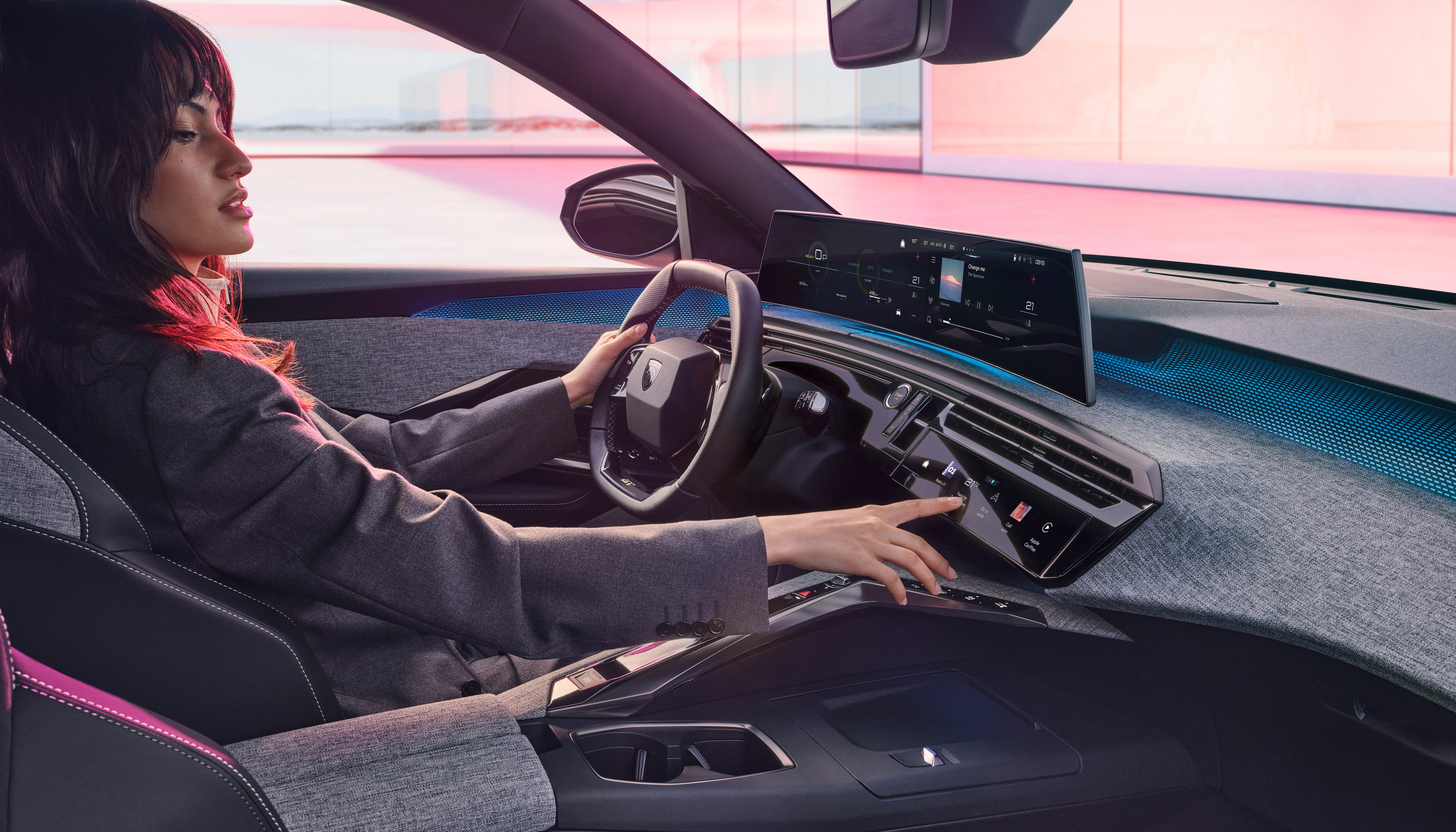£1,500 Electric Car Grant Available*.MAKE AN ENQUIRY

ELECTRIC VEHICLES FAQ
ADVANTAGES
Why buy an electric vehicle rather than a petrol or diesel vehicle?
Thanks to the reduction in emissions, a PEUGEOT electric vehicle is better for the environment, but also offers many other benefits:
- Smooth driving with no noise, vibration or smell
- No gear changes
- Savings on fuel and maintenance costs
Should I choose a 100% electric vehicle or plug-in hybrid vehicle?
An electric vehicle doesn't use fuel because it's powered by electric batteries. It is a totally non-polluting zero emission vehicle (ZEV). If you drive less than 30 miles a day, its range means you can drive with peace of mind for one week on only one full charge.
A hybrid vehicle gets some of its power from a petrol engine. A fully hybrid vehicle charges its batteries via the petrol engine when driving. A plug-in hybrid vehicle has to be plugged in to charge the battery and has a real electric range. A plug-in hybrid vehicle can travel further in electric mode than a full hybrid vehicle and this 100% electric mode can be easily activated by the driver. The electric mode also allows you to adapt your driving style to the type of road you are driving on.
How much does it cost to charge an electric vehicle at home?
BATTERIES
What is the warranty for the battery of a PEUGEOT electric vehicle?
Can the battery of my electric vehicle be replaced?
When buying an electric or plug-in hybrid vehicle, we recommend you subscribe to a Service Plan: everything is included to guarantee you peace of mind when you own the car, and also to ensure you get the best resale price. A service plan includes:
- A battery capacity certificate;
- Replacement or repair of defective parts;
- Replacement of wear parts, such as brake pads or wiper blades
- Routine servicing
- Roadside assistance (including running out of power).
DRIVING RANGE
What is the range of my electric vehicle?
Equipped with a 50 kWh battery (a 75 kWh battery is also available on some versions of the PEUGEOT e-Traveller), the PEUGEOT electric range offers a maximum power of 100 kW and allows you to travel up to 225 miles WLTP(i) The driving range and electrical consumption values specified comply with the WLTP test procedure and may vary according to the accessories fitted (pre and post-registration), variations in weather, driving styles and vehicle load. on a full charge.
How can I optimise the operating range of my vehicle?
Why is the range of an electric car less when it is cold?
Who certifies the range of an electric car?
CHARGING
How do I charge my electric vehicle?
There are several ways you can charge your electric vehicle:
- Home or private charging: you can charge your vehicle directly from home by choosing a domestic socket, a high-power socket or a wall box;
- Public charging: you can charge your vehicle at more than 48,000 charging points in the UK and 250,000 PEUGEOT-compatible charging stations across Europe. Find charging points.
How long will it take to charge my electric car?
Charging time cannot be stated exactly as it depends on several factors:
- The power of the charging station and the charging cable used;
- The weather conditions;
- The charge level of your battery. The lower your battery level, the longer it takes to charge.
To minimise charging time, consider fitting a wall box at home
On the road, use rapid charging stations wherever possible and retrieve 80% of your range in 30 minutes. The MyPeugeot app helps you to locate them in an instant.
How can I monitor the charging of my electric vehicle remotely?
What are the recommendations for charging my electric car?
If you are charging your vehicle at home, we advise you to charge it during off-peak hours (between 9.30 pm and 7.30 am and 12 noon and 4 pm) in order to optimise the cost of charging.
To optimise your charging time, fitting and using a Wall Box at home will save you a significant amount of time (4h to reach 80% range vs 25h on a standard domestic plug). On the road, use fast charging stations and retrieve 80% of your range in 30 minutes.
MAINTENANCE
What maintenance is required for an electric vehicle?
The motor of an electric car is less complex and has fewer mechanical parts than a combustion engine, so a number of services such as oil changes, timing belt changes and spark plug changes are no longer necessary if you drive electric.
And thanks to the regenerative braking system, the wear on brake pads and discs is minimised, guaranteeing them a longer life and saving you money.
When should I make a service appointment for my PEUGEOT electric car?
A PEUGEOT electric car requires less maintenance than a combustion-engine vehicle: no more oil changes, oil filter or clutch replacements or emissions checks. You therefore need fewer services.
To manage the maintenance of your PEUGEOT electric car, the MyPeugeot app offers a virtual service booklet that helps you follow the recommended servicing schedule for your vehicle. The data the app needs to do this correctly are:
- Current mileage, average mileage and information on how you use your car (personal or business)
- Details of any maintenance carried out
This information will already be in th app for drivers with Connected Navigation and Digital Service record activated. Drivers without will need to log data manually. Digital Service Record is a free service. If you'd like to activate yours, make an appointment with your PEUGEOT retailer who will be happy to help.
JOURNEYS
Can I make long journeys with an electric car?
The entire PEUGEOT electric range allows you use rapid charging on the road or on the motorway.
In just 30 minutes, you can retrieve up to 225 miles of WLTP range. Find your nearest charging station by downloading the Electroverse app https://electroverse.octopus.energy/partnerships/peugeot?cid=peugeot-web
How can I be sure to have enough battery power for long journeys?
You can estimate the range of your electric PEUGEOT free of charge according to your use thanks to our dedicated simulator. https://www.peugeot.co.uk/electric-and-hybrid/drive-electric/electric-charging.html
Adopting a smooth driving style and activating the Eco Mode on long journeys will avoid excessive energy consumption. Smooth acceleration and the use of regenerative braking can save up to 15% of your vehicle's range. Finally, remember to keep to the speed limit, as driving at high speeds will reduce the range of your vehicle.
Can I drive in the rain or snow with an electric car?
The vehicle's bonnet and charging-port flap ensure that the electrical components are watertight, so you can enjoy driving in the rain or snow in your PEUGEOT electric vehicle. Take the following steps to ensure your vehicle is as well protected as it can be:
- Before washing your vehicle, close the charging-port flap
- Don't wash your vehicle while charging or high-pressure wash the engine compartment or under the chassis;
- Don't allow water or dust to enter the connector or charging plug;
- Don't connect or disconnect the charging plug with wet hands
AN ELECTRIC CAR
What is an electric car?
How does the motor of a 100% electric car work?
HYBRID CARS
What is a plug-in hybrid vehicle?
What is the difference between a hybrid vehicle and a plug-in hybrid?
How does a plug-in hybrid vehicle work?
What is an EV, BEV, HEV, PHEV or FCEV car?
There are several abbreviations for the different types of electric and plug-in hybrid vehicles:
- EV or "Electric Vehicle" and BEV for "Battery Electric Vehicle" for 100% electric vehicles;
- HEV or "Hybrid Electric Vehicle" for hybrid electric vehicles that are equipped with an electric motor and a combustion engine;
- PHEV or "Plug-in Hybrid Vehicle" for cars equipped with a combustion engine and a rechargeable battery electric motor;
- FCEV or "Fuel Cell Electric Vehicle" for electric vehicles that use a hydrogen-powered fuel cell instead of a battery.
BUSINESS VEHICLES
Is electric the best choice for my business?
For both the company and the driver, electric vehicles have many advantages:
- the same dimensions and load space as petrol or diesel versions
- Benefit In Kind (BIK) reductions
- less maintenance and servicing
- a more comfortable drive: less noise, less vibration
- zero CO2 emissions and access to low emission zones




